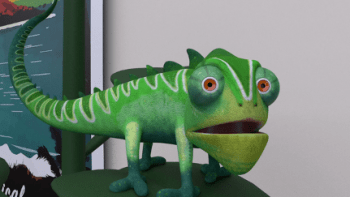 F20 ART 335K
F20 ART 335K
Animated Worlds
Taught by Jon Navy
T/TH 8:30 – 11:20 am
This course explores contemporary, traditional and experimental 3D animation in a short film format. Beginning students will focus first on polygon and NURBS modeling, texturing, lighting and rigging props and characters in Maya (or similar software by arrangement with the instructor). The principles of animation are identified through exercises that emphasize storytelling through movement, timing, virtual cinematography, and editing using both 2D and 3D techniques. Additional assignments are in research and analysis of current and past animations. A storyboard, animatic and final rendered short will be developed for two major projects:the first,30 seconds or morein duration, the final up to three minutes. Advanced skillsets and studies may include character design and modeling, set design, rigging, visual effects, sound, and rendering. No prerequisites or previous experience required. This course can be taken multiple times at either beginner or advanced level. Open to freshmen through graduate level students across the university. Graduate and advanced students can build independent and/or team projects with consultation of the instructor. The final will be a team project. Animation by former students Daniel Schroeder and Noah Sturbois is available to view.
F20 ART 217P
Drone Photography
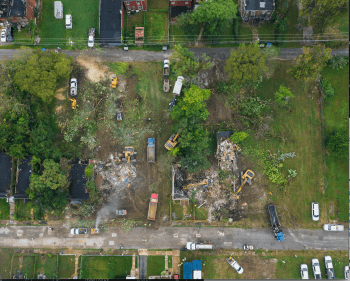 Taught by Meghan Kirkwood
Taught by Meghan Kirkwood
T/TH 2:30 – 4:00 Lab 4:00 – 6:20 pm
This combination studio and discussion-based course examines the use of small unmanned aerial systems (sUAS) — otherwise known as drones — as a photographic medium. Studio sessions will introduce students to sUAS operation,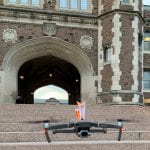 various editing platforms, and output strategies. In order to ensure equal access to sUAS, students will be required to meet outside of class sessions (for flying time) intermittently throughout the semester–once a week from mid-September to late October. Students must register for either Subsection A or B.
various editing platforms, and output strategies. In order to ensure equal access to sUAS, students will be required to meet outside of class sessions (for flying time) intermittently throughout the semester–once a week from mid-September to late October. Students must register for either Subsection A or B.
F20 ART 313J
Digital Fabrications for Object Making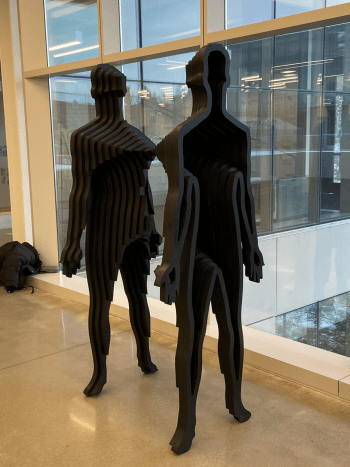
Taught by Noah Kirby
M/W 1:00 – 3:50 pm
Get Excited and Make Stuff! This class is all about learning how to use laser cutters, 3D printers, and CNC routers to “Make Things”. If you want a place to experiment with digital fabrication resources this class is for you. Assignments introduce opportunities to explore both software and hardware with the end goal of being able to fluidly move between analog and digital modes of production. This course introduces these resources to artists, designers, engineers, and anyone interested in exploring the possibilities of digital fabrication tools. No prerequisites necessary.
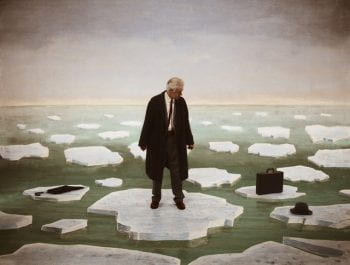 F20 1183A
F20 1183A
Digital Photography
Taught by Richard Krueger
T/TH 8:30 – 11:20 am
This introductory level course will explore digital technology for capturing, enhancing and producing still lens-based images. The course will address basic digital camera operations, the visual language of camera-generated images, computer workflow and the connoisseurship of digital image output. The course assumes no prior knowledge or experience with digital imaging technologies or materials. Students must provide a digital. (photo Teun Hocks, Untitled(Man on Ice) 2003-2014)
F20 ART 223K
Business of Fashion
Taught by Claire Thomas Morgan
T/TH 11:30 – 12:50 pm
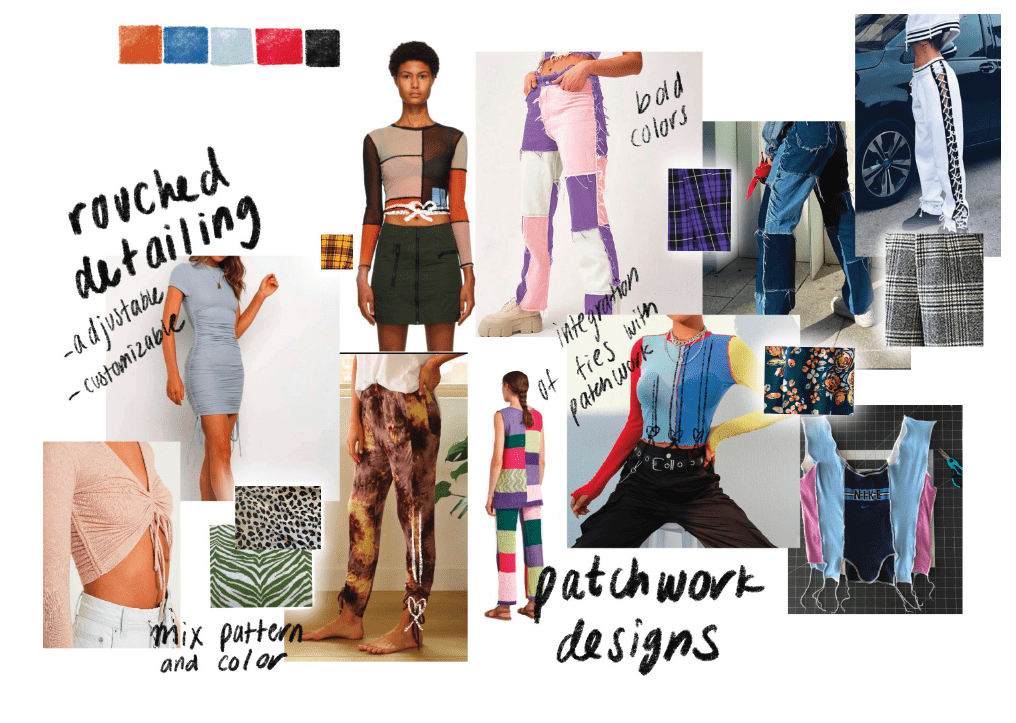 Are you interested in the fashion industry? Whether you want to start your own fashion business or break into the industry from another front, Business of Fashion gives you an overview of everything you’ll need to know. We cover product development and production, costing and funding, PR and marketing, sales and buying, as well as sustainability and the future of the industry. At the end of the course, you get to put your knowledge to use building a business plan for your own entrepreneurial idea. Discover a Skeletal Business Plan.
Are you interested in the fashion industry? Whether you want to start your own fashion business or break into the industry from another front, Business of Fashion gives you an overview of everything you’ll need to know. We cover product development and production, costing and funding, PR and marketing, sales and buying, as well as sustainability and the future of the industry. At the end of the course, you get to put your knowledge to use building a business plan for your own entrepreneurial idea. Discover a Skeletal Business Plan.
F20 ART 241E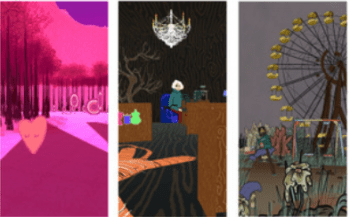
Digital Game Design
Taught by Eric Nunez
M/W 1:00 – 3:50 pm
For decades games have primarily been considered a form of commercial entertainment. More recently though there has been interest in examining the potential games have as an interactive medium. Artist and designers are creating games that are challenging humans to recontextualize what games are or what they can be. In Digital Game Design students will have the opportunity to not only discover how games are made but also their application in both design practice.
F20 ART 114H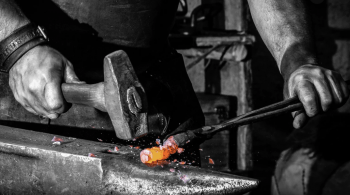
Blacksmithing
Taught by Noah Kirby
M/W 6:00 – 8:50 pm
Get it Hot and Hit it!This course is an introduction to Blacksmithing materials, tools, and techniques. Students will explore the fundamental techniques of hot forming metal with forge, anvil, and hammer.Assignments are project driven with a focus on generating both utilitarian and sculptural objects.No prerequisites necessary.
F20 ART 319J
Sculptural Ceramics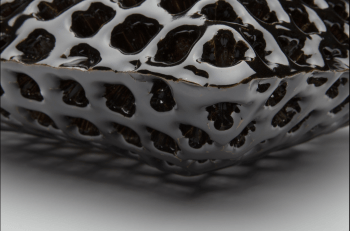
Taught by Andrea Moon
T/TH 1:00 – 3:50 pm
Structural Ceramics is a course designed for advancing study in 3D practices within clay processes and in sculpture. Several techniques in clay will be explored and focus will be emphasized on hand-building. Methods of creating are coiling, 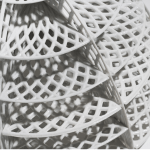 slab building, casting, and subtractive modeling. In this course, practice and research clay as a material that engages in structure and introduces new sculptural ideas defining scale, balance, form, etc. Surface design with cold finishes and glazes, firing processes, and mold making will be explored as means of building and finishing content.
slab building, casting, and subtractive modeling. In this course, practice and research clay as a material that engages in structure and introduces new sculptural ideas defining scale, balance, form, etc. Surface design with cold finishes and glazes, firing processes, and mold making will be explored as means of building and finishing content.
F20 ART 217M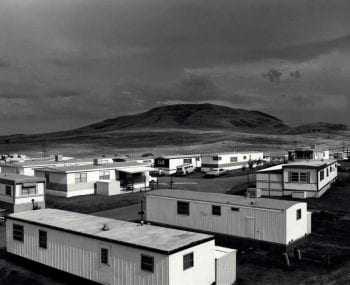
Architecture Through the Photographic Lens
Taught by Jennifer Colten
M/W 5:30 – 8:20 pm
Photography offers ways of seeing and representing the world around us. This course provides technical and conceptual frameworks for understanding architectural space as seen through the camera. Topics include building as site, landscape as context, and the architectural model as a representation tool. Students are introduced to a wide range of artists and architects, helping build a unique camera language to support their individual projects. Students will learn DSLR camera basics, fundamentals of Photoshop, digital output printing techniques and studio lighting for documenting architectural models.The course assumes no prior experience with photography. Video of Professor Colten discussing her class.
F20 ART 337T
Visual Principles for the Screen
Taught by Erika Roos 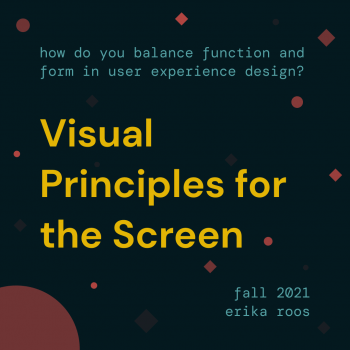
M/W 8:30 – 11:20 am
How do we balance form and function within interface design? How can visual design facilitate and support intuitive digital experiences through a UX lens? Through designing and prototyping screen-based experiences from the ground up, students will learn the fundamental visual design skills of layout, hierarchy, typography, use of the grid, scale, balance, color, content curation, and language.
F20 ART 337A
Illustration Entrepreneur
Taught by Linda Solovic and Christine Boesch 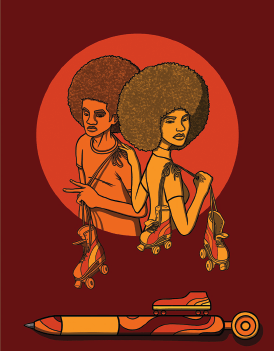
T/TH 1:00 – 3:50 pm
Are you thinking you would like to explore other ways to make a living with your artistic talent once you get out of college? Do you have skill sets that you want to explore and utilize? What if you like solving assignments but doing that does not seem creative enough? Do you want to forge your own way but are not sure how to do it? Or are you doing well solving traditional illustration assignments, but you want to know other ways to support yourself? Many artists have asked these same questions. And many of them have found innovative solutions that generate income as well as fulfilling their creative passions. In this class, you will look at successful illustrators/designers and the paths their careers have taken. In this digital age, more ways to 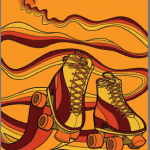 make a living through illustration and design are available. Students will explore website stores, creative specialty shops, online sites, popup shops, trending, and licensing. Students will also learn about artists, who using their talents, have created unique careers for themselves. The projects for this class will tie into the above topics. Class is designed for illustrators but applicable for designers and design minors.
make a living through illustration and design are available. Students will explore website stores, creative specialty shops, online sites, popup shops, trending, and licensing. Students will also learn about artists, who using their talents, have created unique careers for themselves. The projects for this class will tie into the above topics. Class is designed for illustrators but applicable for designers and design minors.
F20 ART 371
Intro to Letterpress
Taught by Michael Powell
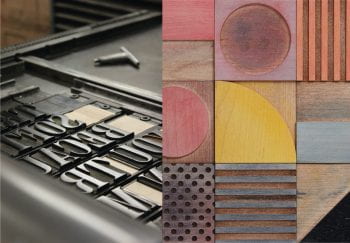
A letterpress is set with wood type (left) and laser-etched wood blocks by printmaker Thomas Mayo (right).
T/TH 6:00 – 8:50 pm
This course will serve as an introduction to the history, craft and conceptual underpinnings of letterpress printing—a centuries old tradition utilizing relief media that continues to change and evolve today. Students will learn a variety of relief printing techniques including printing from wood type, making and printing from photopolymer plates, and creating multi layer printed images from carved blocks. Throughout this course students will investigate not only the technical aspects of letterpress printing, but also the ways that letterpress printing relates to and informs design, creative practice, as well as popular and political culture.
F20 ART 385D
Art Seminar: Fantastic Voyage and Scales of Wonder
Taught by Patricia Olynyk
M 8:30 – 11:20 am
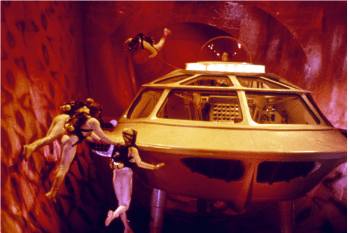 This course will examine scale as a central theme and explore the various ways in which it plays out in discreet time-based works, including: Charles and Ray Eames’s The Powers of Ten; Victoria Vesna’s Noise Aquarium; Team Lab’s Infinite Crystal Universe; Mat Collishaw’s All Things Fall and Sordid Earth; Tony Oursler’s The Influence Machine; Jennifer Steinkamp’s 6EQUJ5, and the 1966 cult film Fantastic Voyage, which inspired Isaac Asimov’s science fiction novel of the same name. Through these works and others, students will examine how the cultural, psychological and aesthetic dimensions of scale play out through a variety of spatial, temporal, and phenomenal encounters. This course will also explore shot scale in addition to affective
This course will examine scale as a central theme and explore the various ways in which it plays out in discreet time-based works, including: Charles and Ray Eames’s The Powers of Ten; Victoria Vesna’s Noise Aquarium; Team Lab’s Infinite Crystal Universe; Mat Collishaw’s All Things Fall and Sordid Earth; Tony Oursler’s The Influence Machine; Jennifer Steinkamp’s 6EQUJ5, and the 1966 cult film Fantastic Voyage, which inspired Isaac Asimov’s science fiction novel of the same name. Through these works and others, students will examine how the cultural, psychological and aesthetic dimensions of scale play out through a variety of spatial, temporal, and phenomenal encounters. This course will also explore shot scale in addition to affective
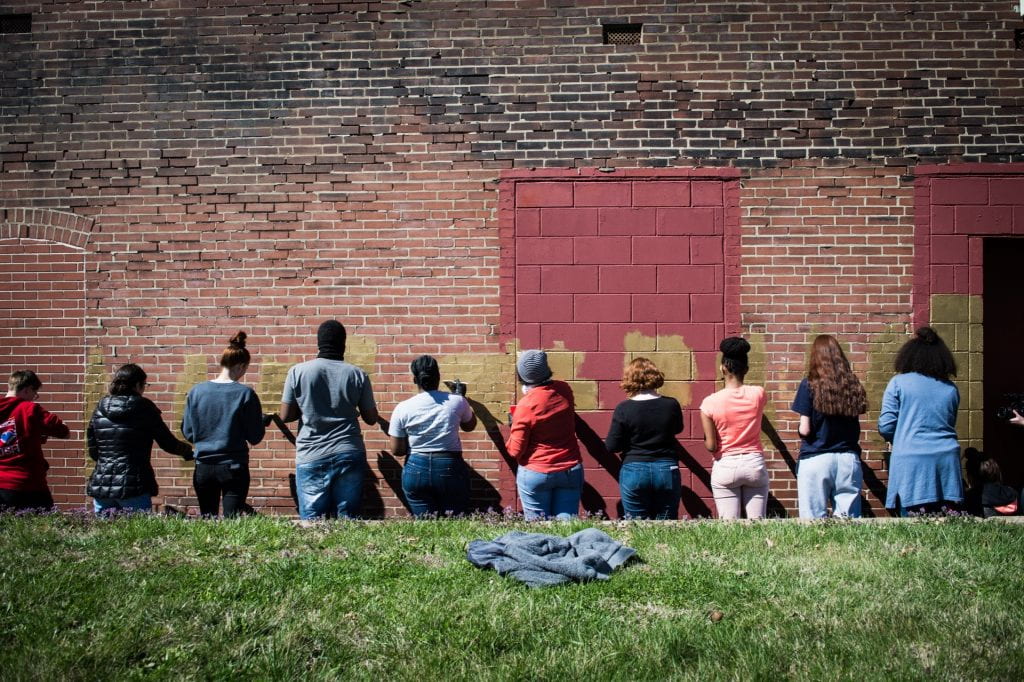 F20 ART 308B
F20 ART 308B
Engaging Community
Taught by Liz Kramer
F 1:00 – 3:50 pm (first 7 weeks)
What does it mean to engage in community as a creative practitioner? Community engagement must be grounded in authentic relationship building, and an ability to understand and act within the historic context and systems that impact communities. In this course, we will practice the skills of listening, observation, and reflection as we cultivate mindsets that support community self-determination and meaningful change.
F20 ART 313Q
Compositions in Clay
Taught by Andrea Moon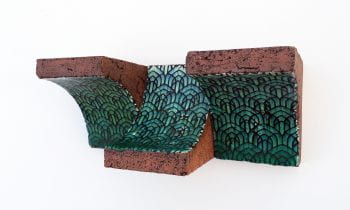
T/TH 8:30 – 11:20 am
Learn to create in clay! Use clay as a material to push ideas, questions, and narratives of self-expression! Practice the techniques of using this malleable material as you build projects that discuss your personal story while engaging in problem solving. Learn basic hand-building techniques to create sculptural constructions, 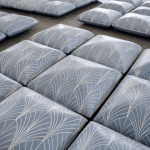 the practical applications of wheel throwing through form & function and explore ceramic tools and equipment to create installation projects. Broaden your understanding of clay as a viable medium of visual expression and three-dimensional exploration. This course will also address the use of alternative spaces and fixtures for ceramic installations and wall presentations.
the practical applications of wheel throwing through form & function and explore ceramic tools and equipment to create installation projects. Broaden your understanding of clay as a viable medium of visual expression and three-dimensional exploration. This course will also address the use of alternative spaces and fixtures for ceramic installations and wall presentations.
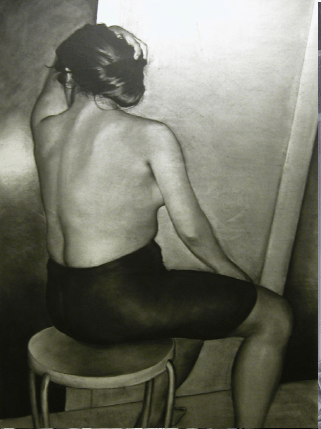 F20 ART 301E
F20 ART 301E
Anatomy Figure Structure
Taught by Jamie Adams
T/TH 4:30 – 7:20 pm
This rigorous drawing course explores traditional and new representations of
the figure through the study of its structure and contemporary contexts. Research involves basic anatomy lectures and sketchbook activities which provide a vehicle for discovering the figure’s architecture, mechanics and proportions. Art production is 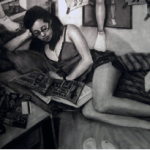 based on in-class and outside projects. Lectures, presentations, critical readings and the analysis of historical and contemporary figurative works support students in their investigations. Prerequisites: F10 101A or 102A Drawing
based on in-class and outside projects. Lectures, presentations, critical readings and the analysis of historical and contemporary figurative works support students in their investigations. Prerequisites: F10 101A or 102A Drawing
F20 ART 347X
Furniture Design
Taught by Lindsey Stouffer
M/W 8:30 – 11:20 am
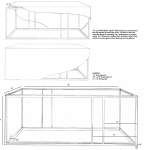 Using Enzo Mari’s Sedia as a springboard, students will learn to design and make furniture.
Using Enzo Mari’s Sedia as a springboard, students will learn to design and make furniture.
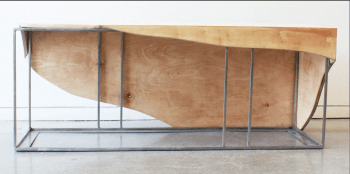
Marina Peng
College of Architecture and College of Art sophomores, juniors, and seniors have priority. Fulfills Sam Fox Commons requirement. Students from across the university are invited and encouraged to enroll. If you have questions, please contact me by email: Lindsey Stouffer <stouffer@ wustl.edu>
F20 ART 397A
Lost in Space-Time Based Media
Taught by Patricia Olynyk
M/W 1:00 – 3:50 pm
This seminar and studio-based course will explore installation art and immersive
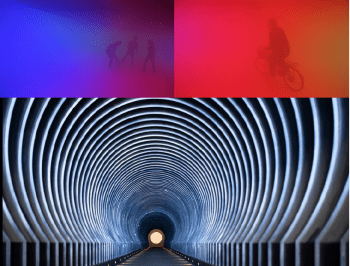
Olafur Eliasson, Fog Room, 2010; James Turrell, Roden Crater, (work in progress)
environments that span art, design, and architecture, many of which use time-based media to affect the viewer’s awareness of corporeality. Examples will include Olafur Eliasson’s FogRoom and Multiple Shadow Room, James Turrell’s Light Reignfall, Yayoi Kusama’s InfinityMirror Rooms, Anish Kapoor’s Cloud Gate and Whirlpool, Diller Scofiddio and Renfro’s Blur Building, Jennifer Steinkamp’s Jimmy Carter, Krzysztof Wodiczko’s A House Divided…, Cyprien Gaillard’s Nightlife, and Won Ju Lim’s California Dreamin’. This course will also explore how immersive spaces operate on different registers while reinforcing the viewer’s recognition of themselves as doppelganger, hybrid, or Other. Students will learn how each work in its own way tinkers with the viewer’s perception of their own bodily scale and encourages spectacular forms of engagement that reinforce the human sensorium.
F20 ART 311U
Language of Moving Image
Taught by Richard Krueger
T/TH 1:00 – 2:20 pm
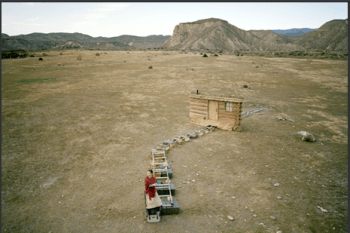
American Night
This course will examine the language of filmic images, which includes—among other elements—shot construction, sequencing, pace, duration, sound integration, scale, and situational contexts. Through screenings, readings, lectures, discussions and critiques, students will develop the analytical skills required to interpret moving images and to think deeply about their productions, which may utilize forms other than video or film and include installation components. Not focused heavily on technical approaches, creative work will be driven predominantly by individual concerns and may be accompanied by written analysis. Prerequisite- Digital Design or Digital Studio. Open to BFA students who have taken the prerequisite, and others, including minors and MFA students, with consent of instructor.
F20 ART 330D
Multimedia Design: Time/Sound/Space
Taught by Amy Auman
M/W 1:00pm-3:50pm
As technology advances, design media is increasingly able to blur the boundaries between 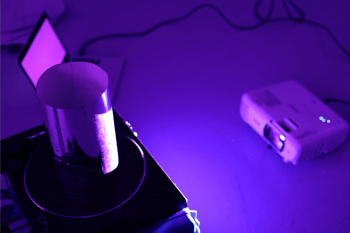 digital and physical spaces. Through experimental approaches to video and other time-based media, students will investigate these boundaries to enrich experiences, as well as orient, educate or delight an audience. Using a foundational understanding of graphic design, students will explore territories in experiential design, motion, film, and sound, generating projects that include both digital and physical media.
digital and physical spaces. Through experimental approaches to video and other time-based media, students will investigate these boundaries to enrich experiences, as well as orient, educate or delight an audience. Using a foundational understanding of graphic design, students will explore territories in experiential design, motion, film, and sound, generating projects that include both digital and physical media.
F20 ART 236A
Interaction Design: Understanding Health and Well Being
Taught by Anne Marie Spitz
TH 4:00 – 6:50 pm
Through a blend of presentations from practitioners, classroom lectures, readings, discussion
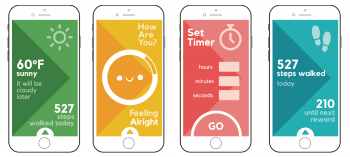
NEXT
A behavioral activation tool
By Jefferson Duan, Claire Wild, and Meredith Liu
and hands-on exercises, this class will engage principles and methods of interaction design within the context of health challenges. Broadly defined, interaction design is the practice of designing products, environments, systems, and services with a focus on behavior and user experience. We will take on an in-depth challenge in the area of health and well-being and work in cross-disciplinary design teams with an external partner organization. Students will gain experience in planning and executing a human centered design process featuring research, ideation, synthesis, concept development, prototypes and a final presentation, which may include visual design, animation, and sound. Students will work in teams to develop several intermediate project deliverables, such as prototypes and sketches. No prior coursework is necessary though experience with Adobe Photoshop, Illustrator and InDesign are helpful. No prerequisites. Class meets as a group every Friday. Optional hours on Wednesdays between 8:30-11:30 am to meet with faculty for additional help or feedback outside of class time. Open to sophomores through graduate students across the university.
F20 ART 236P
Design in Social Systems
Taught by Jude Agboada
T/TH 8:30 – 11:20 am
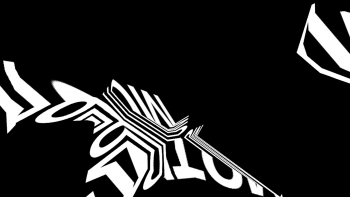 This multidisciplinary seminar course will cover historical and contemporary contexts of socially engaged work within art and design disciplines. Students will explore various processes that artists and designers use to address, influence, and inspire change around systemic social issues. In addition, through in-class collaborative workshops, students will apply a “systems thinking approach” to a select number of real-world social issues in order to gain a better understanding of how these issues are shaped by policies and individual experiences. This course will also include a final group project completed in partnership with a local community-based organization in which students will apply creative-problem solving processes such as human-centered design, equity-centered design, , design activism, and social justice to arrive at collective impact. Models of social change from other disciplines such as social entrepreneurship and innovation, non-profit models, and public-interest design will be featured through guest lectures, field trips to community-based organizations, case studies, readings and written reflections.
This multidisciplinary seminar course will cover historical and contemporary contexts of socially engaged work within art and design disciplines. Students will explore various processes that artists and designers use to address, influence, and inspire change around systemic social issues. In addition, through in-class collaborative workshops, students will apply a “systems thinking approach” to a select number of real-world social issues in order to gain a better understanding of how these issues are shaped by policies and individual experiences. This course will also include a final group project completed in partnership with a local community-based organization in which students will apply creative-problem solving processes such as human-centered design, equity-centered design, , design activism, and social justice to arrive at collective impact. Models of social change from other disciplines such as social entrepreneurship and innovation, non-profit models, and public-interest design will be featured through guest lectures, field trips to community-based organizations, case studies, readings and written reflections.